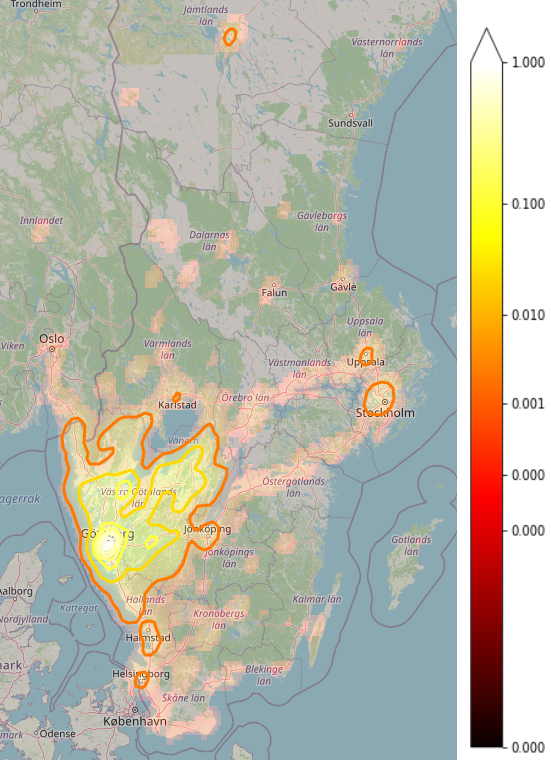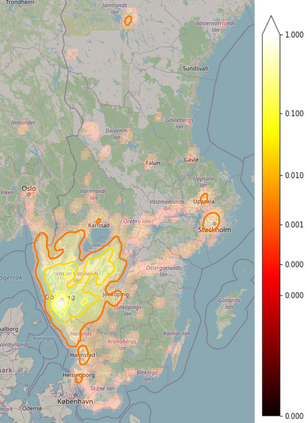Trip destination prediction is an area of increasing importance in many applications such as trip planning, autonomous driving and electric vehicles. Even though this problem could be naturally addressed in an online learning paradigm where data is arriving in a sequential fashion, the majority of research has rather considered the offline setting. In this paper, we present a unified framework for trip destination prediction in an online setting, which is suitable for both online training and online prediction. For this purpose, we develop two clustering algorithms and integrate them within two online prediction models for this problem. We investigate the different configurations of clustering algorithms and prediction models on a real-world dataset. By using traditional clustering metrics and accuracy, we demonstrate that both the clustering and the entire framework yield consistent results compared to the offline setting. Finally, we propose a novel regret metric for evaluating the entire online framework in comparison to its offline counterpart. This metric makes it possible to relate the source of erroneous predictions to either the clustering or the prediction model. Using this metric, we show that the proposed methods converge to a probability distribution resembling the true underlying distribution and enjoy a lower regret than all of the baselines.
翻译:在诸如旅行规划、自主驾驶和电动车辆等许多应用中,对旅行目的地的预测是一个日益重要的领域。尽管这个问题可以自然地在在线学习模式中解决,因为数据是以相继方式到达的,但大多数研究更倾向于考虑离线设置。在本文中,我们提出了一个适用于在线培训和在线预测的在线设置中对旅行目的地预测的统一框架。为此目的,我们开发了两种组合算法,并将它们纳入这一问题的两个在线预测模型中。我们研究了在现实世界数据集上组群算法和预测模型的不同配置。通过使用传统的组合计量和准确度,我们证明集群和整个框架与离线设置相比都产生了一致的结果。最后,我们提出了一个新的遗憾度量度,用于评估整个在线框架与离线对应的对比。这一度量度使得有可能将错误预测的来源与集群或预测模型联系起来。我们用这一度来表明,拟议方法与真实基本分布的概率相融合,并享有比所有基线低的遗憾度。






